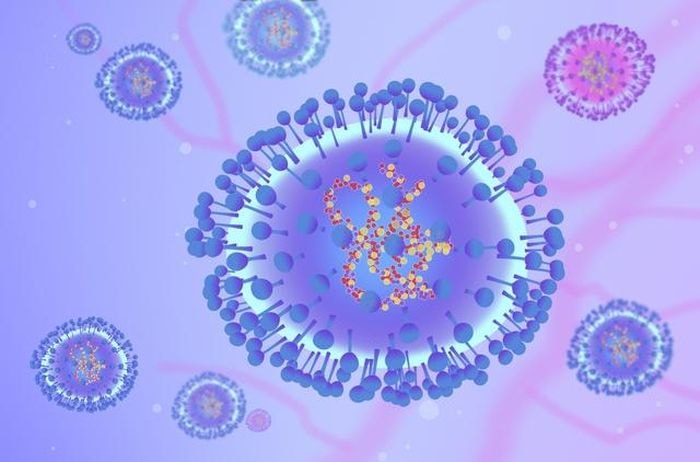According to experts, the symptoms of HMPV virus are similar to cold or flu. This is one of many viruses that are often lumped into the definition of the common cold.

Human metapneumovirus (HMPV) is a virus that causes respiratory illness with flu-like or cold-like symptoms, but increases the risk or leads to serious complications such as bronchitis or pneumonia.
HMPV is related to respiratory syncytial virus (RSV). According to the Guardian, the virus has been around since at least 2001, when it was first discovered in the Netherlands. Outbreaks have been concentrated in the cold season.
HMPV cases are on the rise in northern China, especially among children. The Chinese Center for Disease Control (CDC) has warned people to take health and hygiene precautions, but has dismissed reports of hospital overload and the risk of a second Covid-19 outbreak.
Experts say the increase in cases may be partly due to new technology that makes it easier to detect and identify HMPV cases.
Meanwhile, Dr Jacqueline Stephens, a senior lecturer in public health at Flinders University in Australia, said the public was becoming more cautious about news about outbreaks. “People are on high alert and hearing the term human metapneumovirus can seem a bit scary,” she said.
Symptoms of HMPV are similar to those of a cold or flu, according to Stephens. It is one of several viruses that are often lumped together under the definition of the “common cold.”
“There are a lot of notifiable diseases because they are so common and so many people have them. They are viruses that make you feel sick for a few days, but if you rest you will get better,” Dr Stephens said.
HMPV can lead to serious illnesses such as bronchitis and pneumonia, especially in the elderly, young children, and immunocompromised people.
“Given the risk, I think the public needs to know about this virus,” said Professor Paul Griffin, director of infectious diseases at Mater Health Services in Brisbane, Australia. “The challenge is that there is not much we can do other than provide information to the public to reduce the likelihood of transmission. There is no vaccine or antiviral, although some are in development.”
According to experts, unlike Covid-19, HMPV has existed for decades and the global population has some herd immunity.
Meanwhile, Covid-19 is a new disease that has never spread in the community before, so it has broken out into a pandemic.
“We don’t necessarily need to worry about an HMPV pandemic, but we do need to be aware of the increasing number of cases and the impact of this virus,” said Griffin.
“I certainly don’t recommend severe restrictions like during Covid-19 but staying home, covering your coughs and sneezes and hand hygiene are very important in winter,” he added.
Both experts also urged against going to work when sick, while Dr. Stephens recommended wearing a mask if you must go out.